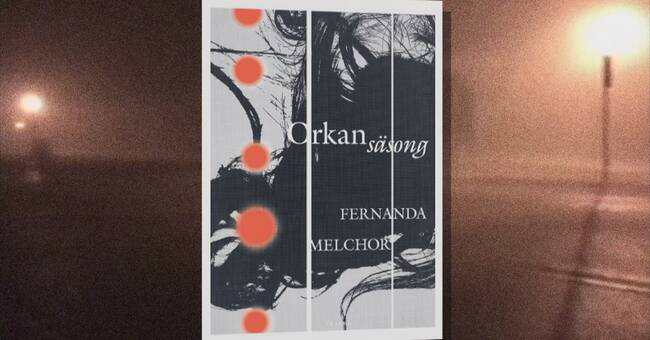It is about life right now in a small village in the Mexican countryside in a violent and rock-hard patriarchal country - one of the world's most dangerous for women to live in - and at the same time it is as if a prehistoric world prevails.
Like the BBC's lavish TV series about the time of the dinosaurs, which followed the struggle for survival during the recurring mantra: "Their lives become short and brutal."
In the fictional village of La Matosa, the body of the hated and feared figure The Witch is found, central to the vulnerable society ruled by superstition, violence and poverty.
The witch's life, as well as the house she grew up in and stayed in, like a wink to Norman Bates in Hitchcock's "Psycho", becomes a tapestry on which Melchor embroiders a village collective, with detours in time, space and dreams, and abysmal subtitles where the text stitches get stuck in the dark.
Here, in principle, there is only misfortune
and doom until death.
And girls suffer the worst, men buy, abandon, abuse them, and mothers for generations who have adapted to the conditions of men punish every weakness, every sign of their own will.
Dreams of love and flight live in short moments, but when the illegitimate children scream, the drugs take over the day and the girls are taken out of school to act as mothers, they are suffocated in the lawless realm that resembles a stylized western prelude.
But the men who come in cars from outside only mean new problems.
It is a dizzying
, manic text that obviously fits into a Latin American tradition with names like Gabriel Garcia Márquez and Roberto Bolano, for the dirty realism mixed with supernatural reality - but the style's pressure-cooked rage can also be found in Thomas Bernhard, whom Melchor referred to in an interview.
Mexico is one of the deadliest countries in the world for journalists as well - and it is logical that Malchor wrote a novel, not a report.
What she writes about - corruption, abuse, drug cartels and the missing - is a reality in a country where those in power can be singled out - but she has gained more than security by making literature of it - a different kind of truth.
The hurricane season mostly refers to
an internal climate, about the limit of what a person endures.
The storm that hammers the lives of these wing-cut novel characters.
People who change port, gender and history, at once figures from an ancient mythology and tormented in the present.
The language is also studied washed away, rough, jargon-like.
It does not matter what you say for change is not possible, no means nothing, or it means danger.
Melchor also uses an intricate chronology, in which the story returns circularly to its earlier phases, increasing the feeling of destiny.
She writes hard, in a masculine contempt for everything feminine, everything that resists being beaten down, penetrated, used, consumed.
It's a world full of children, but no childhoods.
You read as if on tiptoe, with the guard up, full of sorrow and admiration.

